Can I Drink Coffee While Fasting?
When it comes to intermittent fasting, one of the most common questions people have is: Can I drink coffee while fasting? Sure you’re good to have coffee during fasting. There are a things to keep in mind. Lets take a look, at the specifics.
Can I Drink Coffee While Fasting?
The good news is that drinking coffee while fasting is generally okay. Coffee has calories and carbs making it unlikely to disrupt your fasting routine. For some having coffee actually aids in adhering to their fasting schedule thanks, to the hunger suppressing effects of caffeine.
Remember, stick to coffee only. Avoid adding cream, milk or sugar as they can introduce calories and carbs that may interfere with your fast. To enjoy coffee during fasting periods opt for it without any ingredients.
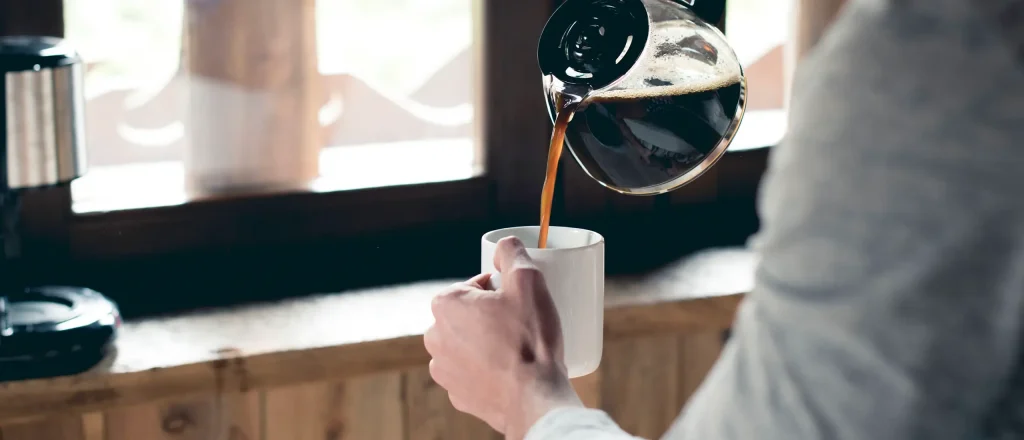
Can I Drink Black Coffee While Fasting?
Sure you can definitely have coffee during fasting. Black coffee has calories and carbs usually less, than 5 calories, per cup. It’s an option if you want to stay in a state.
In addition to being okay to consume during a fast, drinking black coffee while fasting may actually provide some benefits. Coffee contains caffeine that can enhance metabolism and promote fat burning to some extent. Additionally coffee is packed with antioxidants that aid, in reducing inflammation within the body. If you’re a fan of coffee and seeking a fasting beverage opting for coffee is a great decision. However it’s important, to forego cream or sugar if you wish to stay in a state.
Can I Drink Coffee While Fasting for Blood Work?
It’s crucial to consider the timing of fasting before undergoing blood tests, such, as a cholesterol panel or glucose test, where fasting for 8 12 hours might be necessary. The positive aspect is that during this fasting period, for blood work you are allowed to have coffee.
Most healthcare professionals agree that drinking coffee while fasting for blood work is acceptable, as long as you drink it black without any added ingredients. Coffees low calorie and carbohydrate content are unlikely to affect the outcome of your blood tests.
If you have any doubts or particular worries it’s advisable to consult your doctor or the lab in advance. Certain tests might have fasting rules that prohibit even black coffee. Nonetheless in instances you are permitted to consume coffee during your fasting period, for blood tests.

Can I Drink Coffee While Intermittent Fasting?
Intermittent fasting has gained traction as a method, for shedding pounds and improving ones well being. The regimen usually consists of abstaining from food for 16 hours each day followed by an 8 hour period, for eating. A common question is can I drink coffee while intermittent fasting?
Yes you’re good to go with having coffee during fasting. Like we mentioned before black coffee has calories and carbs so it won’t disrupt your fasting period. In reality many folks discover that sipping on coffee while intermittent fasting helps them stay on track with their fasting schedule thanks, to the caffeines ability to curb hunger.
Some individuals even opt to extend their fast and follow an 18;6 fasting routine, where they fast for 18 hours and eat within a 6 hour timeframe. Having coffee during fasting fits in, with this method. A reminder. Keep it simple with black coffee and skip any additional ingredients.
Can I Drink Coffee While Fasting for Bloodwork?
If you have a blood test scheduled that requires fasting, you may be wondering can I drink coffee while fasting for bloodwork? Sure you can have a cup of coffee before your blood test long as you skip the cream, sugar or any other extras.
During fasting for blood tests it’s usually okay to have water, tea or black coffee because they have calories and carbs that shouldn’t affect your results much. However drinks like juice, soda and coffee, with sugar or cream may impact test outcomes.
It’s better to steer clear of those. If you’re unsure about whether you can drink coffee while fasting for bloodwork it’s wise to check with your doctor or the lab to make sure it won’t interfere with your tests. In situations having coffee is generally fine, during fasting for blood tests.
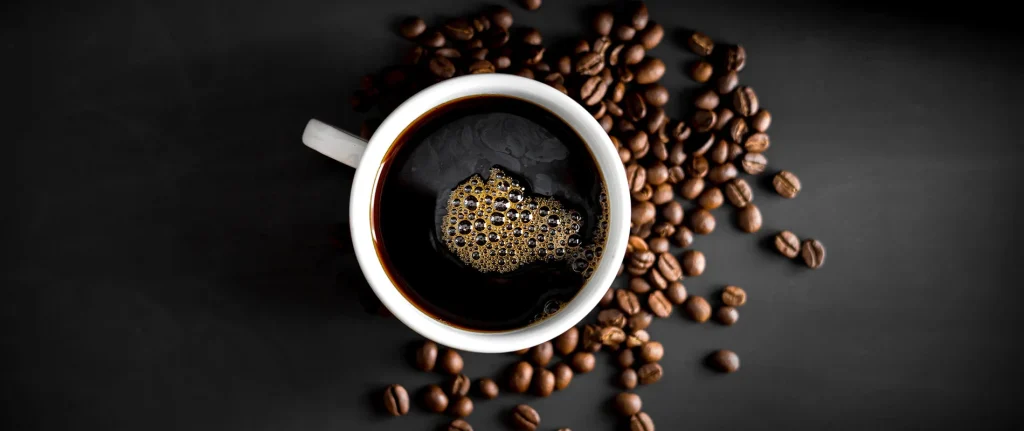
Can I Drink Coffee with Stevia While Fasting?
If you typically sweeten your coffee, you may be wondering if sugar substitutes like stevia are allowed during a fast. Can I drink coffee with stevia while fasting? The answer is a bit tricky.
Stevia doesn’t have any calories or carbs so it probably won’t disrupt your fast in terms of metabolism. However for some people, stevia and similar sugar substitutes may cause an insulin reaction, which could affect processes like autophagy ( cleansing) and other fasting advantages. Moreover using stevia and other sweeteners the ones, without calories might increase appetite and trigger cravings in individuals potentially making fasting a more challenging task.
So while you can technically drink coffee with stevia while fasting, it may be best to avoid it, especially if you’re fasting for autophagy or appetite control benefits. If you find black coffee too bitter you could experiment with cutting back on the stevia until your taste buds adjust.
Can I Drink Coffee While Fasting?
Let’s recap: Can I drink coffee while fasting? Sure you can have coffee during your fast long as you don’t add any extras, like cream, sugar or even stevia. Black coffee has calories and carbs that shouldn’t have an impact on your fasting.
Actually having coffee while fasting can be good for you. The caffeine in coffee can help curb your appetite give your metabolism a boost and aid in burning fat. Coffee is also packed with antioxidants that can help reduce inflammation in the body.

Can I Drink Black Coffee While Fasting for Blood Work?
Can I drink black coffee while fasting for blood work? The answer is yes, in most cases you can drink black coffee while fasting for blood work. Black coffee has calories and carbs that are unlikely to affect the results of your blood test. Many healthcare professionals agree that it’s fine to have coffee while fasting before a blood test.
However it’s best to check with your doctor or the lab to make sure that drinking coffee, during your fasting period is suitable, for the tests you’re undergoing. It’s worth noting that some specialized tests may require fasting rules where even black coffee is not permitted.. For standard blood tests having black coffee while fasting is generally acceptable. Just remember to steer of adding cream, sugar or any other ingredients.
Can I Drink Coffee While Fasting for Blood Test?
Similar to fasting for bloodwork, you can usually drink coffee while fasting for a blood test as long as it’s black coffee without any additives. For blood tests having a small amount of plain black coffee is unlikely to significantly alter the test results.
However it’s always a good idea to check with your healthcare provider or the lab to confirm if consuming coffee while fasting for a blood test is permitted in your situation. Some specialized tests may require fasting guidelines.
If you are given permission to drink coffee while fasting for a blood test ensure that you drink it without any additives, like cream, milk, sugar or sweeteners. These could introduce calories and carbohydrates that might disrupt your fasting state and potentially affect your test outcomes.

Can I Drink Black Coffee While Intermittent Fasting?
Can I drink black coffee while intermittent fasting? Absolutely! In fact, drinking black coffee while intermittent fasting is a common practice for many people. Black coffee has a calorie and carb content making it a suitable choice while fasting. Additionally the caffeine present, in coffee can have effects when following a fasting regimen. It may help reduce hunger pangs boost alertness and enhance concentration.
Some research even suggests that caffeine could potentially increase metabolism and promote burning. If you appreciate coffee and wish to simplify your fasting routine you can enjoy coffee without any added ingredients, like cream, sugar or sweeteners to maintain your fasted state effectively.
Can I Drink Coffee with Creamer While Fasting?
Many people enjoy their coffee with a splash of creamer or half-and-half. But can I drink coffee with creamer while fasting? Unfortunately, the answer is no. Adding creamer to your coffee will break your fast.
Creamers, the “or sugar free options have calories and carbs that can increase insulin levels and disrupt your fasting state. Even a small serving of creamer usually contains, around 20 30 calories, which can add up if you have cups.
Therefore if you’re dedicated to fasting it’s advisable to skip using creamer. Adding creamer to your coffee during fasting might hinder the advantages of fasting such as autophagy, fat metabolism and enhanced insulin sensitivity.
If you find coffee consider gradually reducing the amount of creamer you use or try plant based alternatives with lower calorie content. Nonetheless, as a rule of thumb it’s better to refrain from mixing coffee with creamer while fasting.
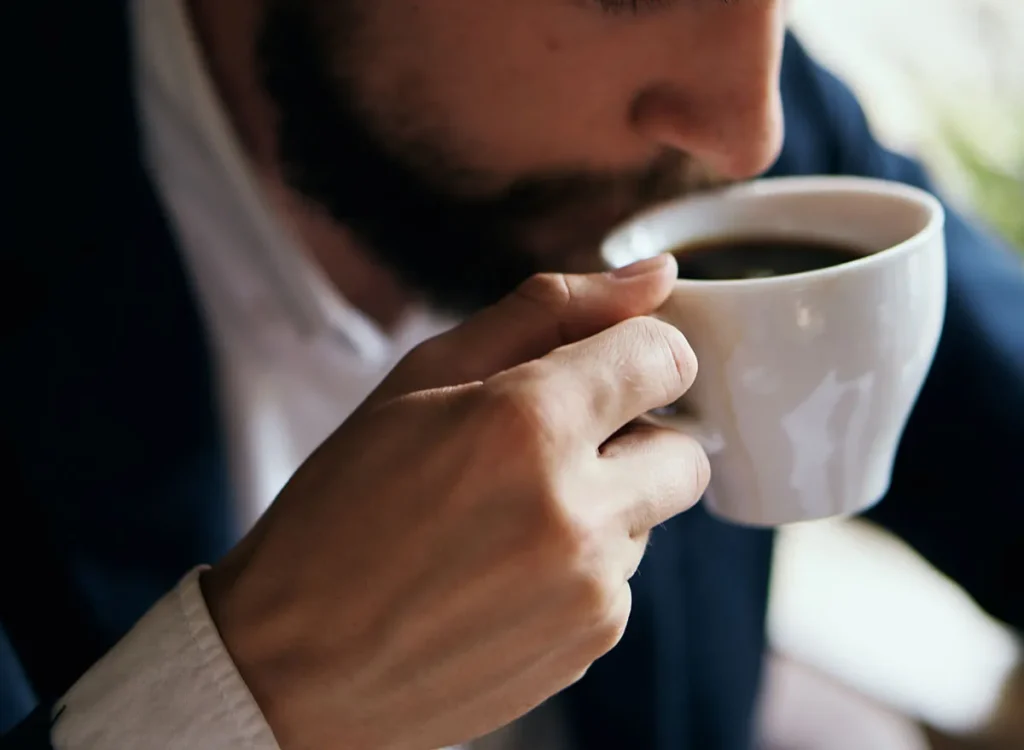
Can I Drink Coffee with Splenda While Fasting?
Artificial sweeteners like Splenda are popular among people looking to cut calories and carbs. But can I drink coffee with Splenda while fasting? Technically, Splenda contains zero calories and carbs, so it should be okay to consume while fasting.
However it’s a bit more complicated, than that. Some research indicates that artificial sweeteners such as Splenda might trigger an insulin response in individuals despite being calorie free. This could potentially disrupt some of the fasting advantages.
Additionally artificial sweeteners can sustain cravings for foods. Result in increased hunger in some people. This may pose challenges to maintaining fasting over the term.
So even though you can technically have coffee with Splenda during fasting it might be better to avoid it if you can especially if you’re fasting for benefits, like autophagy or appetite management. It’s advisable to lessen your use of sweeteners over time.
Can I Drink Coffee While Fasting for a Blood Test?
If you have an upcoming blood test that requires fasting, you’re probably wondering what you can and can’t consume during the fasting window. Can I drink coffee while fasting for a blood test? In most cases, the answer is yes, as long as you drink it black.
For blood tests it’s generally okay to have black coffee while fasting, as long as you skip the cream, sugar or any other calorie containing additives. The small amount of calories and carbs, in coffee shouldn’t have an impact on your test results.
However there are exceptions to this rule. Some specialized tests may require a fasting protocol where even black coffee’s off limits. To be, on the side its recommended to consult your doctor or the lab to confirm whether you can drink coffee while fasting for your blood test.
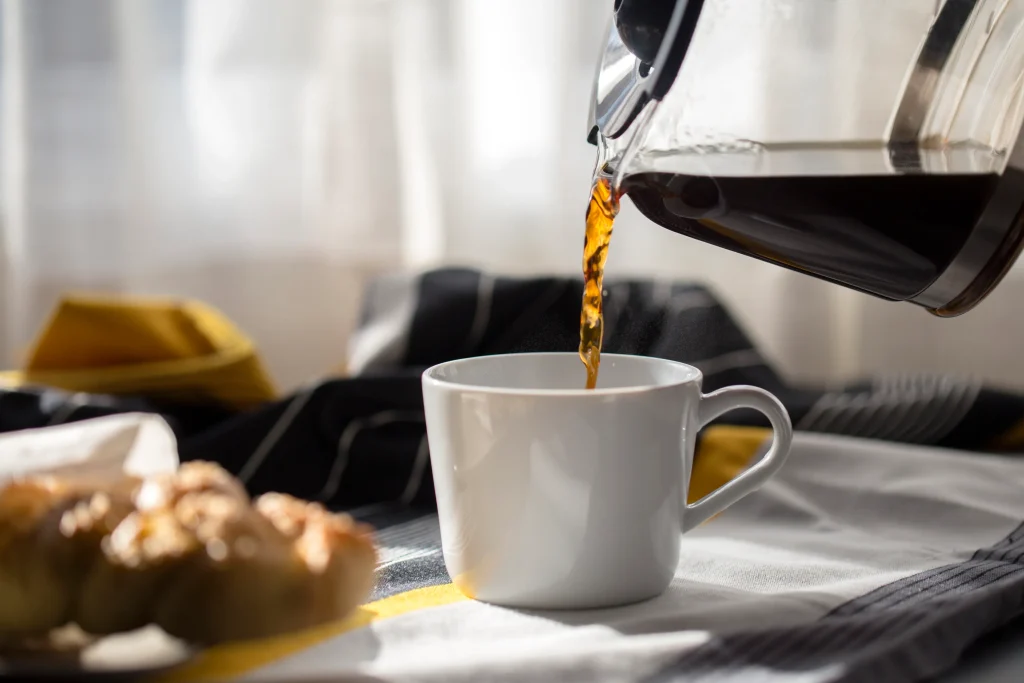
Can I Drink Coffee While Fasting for Labs?
Labs, or laboratory tests, often require fasting for accurate results. If you have labs scheduled and usually enjoy a morning coffee, you’re probably asking: Can I drink coffee while fasting for labs? The answer depends on the specific lab tests ordered.
For laboratory tests, such, as a basic metabolic panel or complete blood count having black coffee while fasting before the tests is generally fine. The minimal calories and carbohydrates in coffee are unlikely to have an impact on these test results.
However for tests like a fasting lipid panel or glucose tolerance test it’s possible that even black coffee should be avoided. In situations it’s important to adhere to the fasting guidelines provided by your doctor or the lab.
If you’re unsure it’s always best to check with your healthcare provider to confirm whether drinking coffee while fasting is permissible, for the lab tests you are undergoing. They can offer tailored advice based on your circumstances.
Can I Drink Bulletproof Coffee While Fasting?
Bulletproof coffee, which is coffee blended with butter and MCT oil, has gained popularity in recent years, especially among keto dieters. But can I drink bulletproof coffee while fasting? The short answer is no, drinking bulletproof coffee will break your fast.
While the fat content, in bulletproof coffee might not trigger an insulin reaction it does contain calories that technically break a fast. A standard serving of bulletproof coffee can range from 200 to 500 calories depending on the quantity of butter and oil used.
Intaking these calories during your fasting period will transition your body out of the fasting state. Diminish many of the advantages of fasting, such, as autophagy and fat metabolism.
Therefore it is not recommended to consume bulletproof coffee while fasting if you aim to uphold a fast. Nonetheless if you are following a modified fast or a time restricted eating schedule that permits some calorie intake, bulletproof coffee could be considered. Just be mindful of the calorie content. How it aligns with your objectives.

Can I Drink Coffee While Fasting and Praying?
During observances such, as Ramadan or Lent individuals who fast for reasons often ponder whether it’s acceptable to have coffee while fasting and praying. Generally the consensus is that having any food or beverage like coffee would disrupt the fasting period.
Most religious fasts require complete abstinence from all food and drink during the fasting window. So drinking coffee while fasting and praying would not be allowed, even if it’s black coffee without calories.
Different religions and personal interpretations can lead to varying fasting rules. Some fasts may permit liquids such, as water or tea. It’s advisable to consult your leader or resources for guidance in matters.
Typically if you’re observing a fast its recommended to refrain from consuming coffee during fasting and prayer. However if your fasting is motivated by health or weight loss reasons black coffee is generally deemed acceptable. The acceptability of coffee intake hinges, on your fasting regimen and objectives.
Can I Drink Coffee While Fasting Before Blood Work?
If you have a blood test coming up that requires fasting, you might be wondering if you can still enjoy your morning coffee. Can I drink coffee while fasting before blood work? In most cases, yes, as long as it’s black coffee without any additives.
For blood tests it’s generally fine to have a cup of black coffee while fasting before your blood work. The small amount of calories and carbs, in coffee shouldn’t have an impact, on the test results. However there are some cases where stricter fasting rules apply for specialized tests that prohibit even black coffee.
It’s always wise to check with your healthcare provider or the lab to make sure if its okay for you to drink coffee while fasting before your blood work, based on your situation. If you do get the light to enjoy coffee before your test remember to opt for black coffee only. Adding cream, sugar or other ingredients could introduce calories and nutrients that might affect your results. So stick with coffee if you’re planning on having some before your fasting blood work.
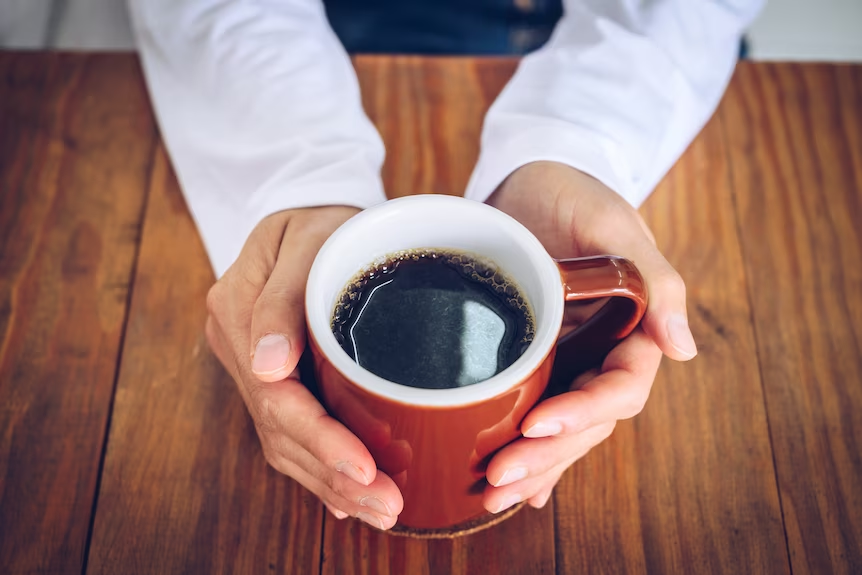
Can I Drink Coffee While Water Fasting?
Water fasting is a type of fasting that involves abstaining from all food and drinks except plain water for a set period of time. If you’re considering a water fast, you might be wondering: Can I drink coffee while water fasting? The short answer is no, coffee is not allowed during a strict water fast.
The main goal of a water fast is to give your system a break and help your body recover and cleanse. Anything besides water such, as coffee can disrupt the fast. Diminish its potential benefits. Even black coffee, with calories and nutrients might stimulate digestion. Interrupt the deep cleansing process that occurs during a water fast.
Therefore if you’re following a water fast it’s advisable to steer of coffee entirely. Its not recommended to drink coffee while on a water. Stick, to drinking water until you end your fast. Once you break your fast you can gradually reintroduce coffee and other foods as your body readjusts.
Can I Drink Black Coffee While Fasting for Blood Test?
When fasting for a blood test, it’s important to follow the instructions provided by your healthcare provider or the lab. But in general, can I drink black coffee while fasting for blood test? In most cases, yes, black coffee is usually permitted.
For blood tests it’s generally okay to have black coffee while fasting. The minimal calories and nutrients, in coffee are unlikely to have an impact on the test results. However there are exceptions to this rule. Certain specialized tests may require a fasting period without any coffee intake. It’s important to consult your doctor or the lab to confirm whether you can drink coffee while fasting for your test.
If you do receive approval to enjoy coffee before your blood test make sure it’s plain, without cream, sugar or flavorings added. These extras could disrupt your fasting state. Potentially affect the accuracy of your results. So if you choose to drink coffee while fasting for a blood test stick with simplicity.
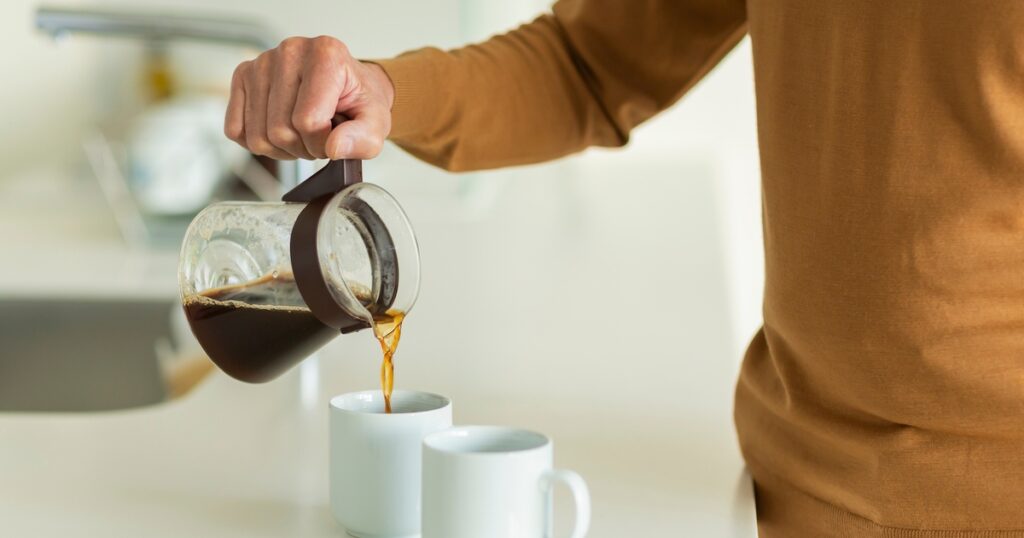
Can I Drink Black Coffee While Fasting for Cholesterol Test?
Cholesterol tests, also known as lipid panels, usually require fasting for the most accurate results. If you have a cholesterol test scheduled and usually enjoy coffee in the morning, you might be asking : Can I drink black coffee while fasting for cholesterol test? The answer is a bit tricky and can vary based on the specific lab or healthcare provider.
Some laboratories and medical professionals may permit the consumption of coffee during a fasting period, for a cholesterol test long as it is done moderately and without any additional additives. The minimal amount of oils released from the coffee beans is unlikely to have an impact on the lipid test outcomes.
On the hand some labs and doctors may opt for a fasting approach that excludes coffee altogether to prevent any potential interference. Caffeine has the potential to influence blood markers and could potentially alter test results, in scenarios.
For the results it is advisable to check with your doctor or the laboratory beforehand regarding whether black coffee can be consumed while fasting for a cholesterol test. They can offer guidance based on their testing procedures.
Will Coffee Break a Fast?
One of the most common questions about fasting and coffee is: Will coffee break a fast? The answer depends on the type of coffee and the fasting protocol you’re following. Black coffee, with its calorie and nutrient content is generally considered safe during a fast. The small amount of calories in coffee is unlikely to disrupt your fasting state or have a significant impact on insulin levels.
However if you choose to add ingredients like cream, sugar or flavored syrups to your coffee then it will break your fast. These additions can introduce calories and carbohydrates that may elevate insulin levels and diminish the benefits of fasting.
For those adhering to a fast for observance, health reasons or weight management goals it’s advisable to opt for plain black coffee or refrain, from consuming coffee altogether. On the hand if you are following a modified fasting approach or time restricted eating regimen black coffee is typically considered acceptable.
Ultimately, the answer to “will coffee break a fast?” depends on your specific fasting goals and the type of coffee you’re consuming. If in doubt, stick to plain black coffee or check with your healthcare provider for personalized advice.

What Can I Put in My Coffee That Won’t Break My Fast?
If you enjoy adding ingredients to your coffee but don’t want to break your fast, you might be wondering: What can I put in my coffee that won’t break my fast? To maintain insulin levels during fasting opt, for calorie low carb choices. Here are some coffee enhancements suitable for fasting;
- Cinnamon; Sprinkling cinnamon adds flavor without calories or carbs.
- Nutmeg; A pinch of nutmeg can boost taste with impact on fasting.
- Vanilla extract; Enhance your coffees flavor with a drops of vanilla extract that adds negligible calories.
- Sugar free sweeteners; While not ideal for strict fasts, moderate use of sugar free sweeteners like stevia, erythritol or monk fruit can be considered as they don’t add calories or carbs.
Remember that even low calorie options may trigger an insulin response or cravings, in individuals. It’s advisable to use them or avoid them if you have health goals during fasting. When unsure sticking to plain coffee is the choice. However if you crave some flavor the mentioned options are less likely to disrupt your fast when compared to cream, sugar or flavored syrups.
Can You Have Milk in Coffee When Fasting?
If you typically enjoy milk or cream in your coffee, you might be wondering: Can you have milk in coffee when fasting? Unfortunately, the answer is no. Adding milk to your coffee will break your fast.
Even a small quantity of milk contains calories, carbohydrates and protein that can elevate insulin levels and take your body out of the fasting state. Even a mere dash of milk can contain 20 30 calories, which can accumulate if you consume cups during your fasting period.
The same applies to plant based milks like almond, soy or oat milk. While they might have calories than cows milk they still have calories and carbohydrates to technically disrupt a fast. Therefore if you are committed, to fasting for health, weight loss or religious reasons it’s advisable to steer of milk and opt for black coffee instead. Adding milk to coffee while fasting can hinder the benefits of fasting such as autophagy, fat burning and improved insulin sensitivity.
If you find coffee consider gradually reducing the amount of milk you use over time to adjust your taste preferences. In general having milk, in your coffee during a fast is not recommended if you aim to maintain a fasted state.

What Can I Drink During Fasting?
When fasting, it’s important to stay hydrated. But you might be unsure about what can I drink during fasting besides plain water. Here are a few drink choices that are suitable, for fasting;
- Water; Opt for water as your pick while fasting. You can enjoy it as is, with bubbles or add a hint of lemon or cucumber for some flavor.
- Coffee; Stick to black coffee without any extras if you’re looking for a fasting friendly option.
- Unsweetened tea; Whether its herbal, green or black tea go for varieties without milk, sugar or sweeteners to change things up during your fast.
- Bone broth; Some individuals prefer including bone broth in fasts for electrolytes and nutrients. Choose a calorie carb store bought option or prepare your own batch.
Remember to steer of beverages containing calories, carbs or protein as they can spike insulin levels and interrupt your fast. This includes drinks, like juice, soda, smoothies, milks, sports drinks and alcohol.
Does Coke Zero Break a Fast?
Coke Zero is a popular zero-calorie, zero-sugar soda. But does Coke Zero break a fast? Technically, no, Coke Zero does not break a fast from a calorie and insulin perspective. Coke Zero is calorie free. Doesn’t contain any carbs or protein. The artificial sweeteners such, as aspartame and acesulfame potassium used in it don’t cause a spike in insulin levels. Disrupt the fasting state.
However there are drawbacks to keep in mind. Some research indicates that artificial sweeteners may trigger an insulin response in individuals without providing any calories. This could potentially impact some of the fasting benefits such, as autophagy.Furthermore the sweet taste of Coke Zero might increase appetite. Create cravings for some individuals, which can make fasting more challenging. From a health perspective consuming sweeteners is not ideal even though they technically do not break a fast.

Why Is 16 Hours the Magic Number for Fasting?
Intermittent fasting has gained popularity as a method, for weight loss. Enhancing health. One of the used approaches is the 16/8 fasting schedule, where you fast for 16 hours and eat within an 8 hour timeframe.. What makes the duration of 16 hours in fasting?
The 16 hour fasting period is deemed effective due to metabolic advantages it offers;
- Insulin levels decrease notably enabling the body to utilize stored fat for energy.
- Human growth hormone (HGH) rises, facilitating burning and muscle development.
- Autophagy, the cleansing process initiates its acceleration around the 16 hour mark.
Moreover a 16 hour fast is manageable for individuals. It involves a fast and skipping breakfast, which proves simpler than attempting a day or longer fast for most people.
Nevertheless while 16 hours works well for many it may not be ideal for everyone. Some individuals may experience benefits with fasting periods like 12 or 14 hours. Others might prefer fasts lasting, between 18 to 20 hours to further enhance autophagy and burning effects.
Will I Lose Weight Fasting 18 Hours a Day?
Fasting for 18 hours a day, also known as the 18/6 intermittent fasting protocol, can be an effective approach for weight loss. But will I lose weight fasting 18 hours a day? The answer depends on several factors.
Fasting for 18 hours a day can aid in weight loss through means;
- Limiting your eating window to 6 hours naturally results in consuming calories, which contributes to weight loss.
- By fasting for 18 hours your body can effectively tap into stored fat, for energy promoting loss.
- Longer fasting periods can enhance insulin sensitivity making it easier for your body to utilize stored fat as fuel.
However it’s essential to note that solely fasting does not guarantee weight loss. The quality and quantity of food choices during the eating window are crucial. Overeating or opting for calorie, poor foods within the 6 hour window may hinder desired weight loss outcomes. For weight loss, with an 18 hour fast focus on consuming whole nutrient dense foods. Prioritize lean proteins, healthy fats and fibrous vegetables to maintain satisfaction and nourishment.
It’s important to recognize that individual outcomes may vary. While some individuals may experience weight loss with an 18 hour fast others may observe progress.Different aspects such, as weight, daily physical activity and overall eating habits contribute to the process. If you are thinking about trying the 18/6 fasting method to shed some pounds it’s advisable to seek advice from a healthcare provider to make sure it suits your requirements and objectives. They can assist you in developing a customized strategy, for the outcomes.

Is It Okay to Fast 16 Hours Every Day?
Intermittent fasting has gained popularity as a way to improve health and promote weight loss. The 16/8 method, which involves fasting for 16 hours and eating within an 8-hour window, is one of the most common protocols. But is it okay to fast 16 hours every day?
For the majority of adults fasting for 16 hours each day is generally considered safe and manageable. Many individuals find this fasting routine sustainable, in the run as it allows for an eating window without the need to completely skip meals.
Some potential advantages of a 16 hour include;
- Better insulin sensitivity
- Increased fat metabolism
- Improved cognitive function
- Reduced inflammation
- Simplified meal planning and preparation
Nevertheless not everyone may be suited for a daily 16 hour fast. Pregnant women, breastfeeding mothers, individuals who are underweight or those with a history of eating disorders should avoid fasting without guidance.
Furthermore certain individuals may encounter side effects such as hunger pangs, irritability or difficulty focusing when initially adopting a fasting regimen. These symptoms typically diminish as the body adjusts; however if they persist or worsen it is advisable to seek advice, from a healthcare provider.
Is a 14 Hour Fast Enough to Lose Weight?
Intermittent fasting has become a popular approach to weight loss, with various fasting schedules and windows to choose from. One common question is: Is a 14 hour fast enough to lose weight? The answer depends on several factors.
Fasting for 14 hours and eating within a 10 hour window, known as a 14 hour fast can be a way to kickstart weight loss. This approach is often easier, for beginners compared to fasting periods since it allows for flexibility in meal times without having to skip meals.
The benefits of a 14 hour fast for weight loss may include;
- A reduction in calorie intake; By restricting your eating window to 10 hours you might naturally consume calories overall.
- Improved insulin sensitivity; Even a shorter fasting period can help enhance your bodys ability to use stored fat for energy by improving insulin sensitivity.
- Increased fat burning; Fasting for 14 hours can prompt your body to utilize fat stores as fuel especially if you engage in physical activity during the fasting period.
However the effectiveness of a 14 hour fast for weight loss can differ from person to person. Factors such as weight, level of activity and overall dietary habits all play a role. To optimize weight loss outcomes with a 14 hour fast focus on consuming foods that’re rich, in nutrients during your eating window. Give priority to lean proteins, healthy fats and fiber rich vegetables to keep yourself feeling satisfied and well nourished.

Final Thought
The dilemma of whether its okay to have coffee while fasting for a cholesterol test is a query, with a nuanced response. Some medical facilities and healthcare providers permit intake of coffee during the fasting phase while others prefer a stricter regimen that excludes coffee altogether to guarantee precise results. To navigate this issue effectively it’s advisable to discuss the instructions with your doctor or the lab in advance.
If you receive approval to enjoy coffee before your test make sure it’s plain, without any additives that could disrupt your fast and potentially impact the accuracy of the panel outcomes. By grasping the variables involved and adhering to the recommended fasting protocols you can ensure that your cholesterol test yields valuable insights into your heart health.
